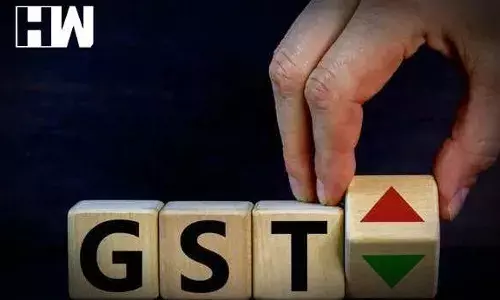NewDelhi: From Jan. 1, a uniform goods and services tax of 12% will be imposed on man-made fibre and readymade garments even as the textile industry is worried that it will increase prices, hurt demand and cause job losses.
In several representations to state and central governments, traders’ associations from across the country had recommended lowering GST rates. Their argument: it could hurt when the industry was just starting to recover from the Covid-19-led disruptions.
The Textile Ministry, however, said in a Dec. 27 statement that the uniform 12% rate will help the man-made fibre or MMF segment emerge as a big jobs provider in the country, it said.
A uniform rate on MMF, MMF yarn, MMF fabrics and apparel would also address the inverted tax structure—a higher rate on raw materials than on finished goods—in the textile value chain, it said. Man-made yarn and fibre is taxed at 2-18% compared to 5% GST on fabric.
Mehta expects the hike to adversely impact 85% of the industry. “It’s unfortunate that the central government is putting more stress on the industry which is still recovering from lost sales and higher input costs for the past two years.”
Traders said the hike will pinch consumers who purchase clothes for less than Rs 1,000. A shirt worth Rs 800 already sells for Rs 966, including a 15% increase in raw material prices and 5% GST. The consumer will now have to pay an additional Rs 68 from January as the GST will rise by 7 percentage points.
The CMAI, like many other protesting lobbies, said the higher rate will either hurt consumption or force consumers to buyer cheaper and lower-quality goods.
The Confederation of All India Traders wrote a letter to Finance Minister Nirmala Sitharaman, asking her to defer the new GST rates. The higher taxes will not only add to the financial burden on consumers, but also manufacturers who would require more funds to run businesses, said.
“Increasing the tax at this point in time is illogical given that domestic trade is on the verge of recovery from the colossal damage caused due to the last two spells of Covid-19,” wrote Praveen Khandelwal, CAIT national secretary general. The Indian textile industry will also find it difficult to compete with peers in countries like Vietnam, Indonesia, Bangladesh and China, he said.
As an independent media platform, we do not take advertisements from governments and corporate houses. It is you, our readers, who have supported us on our journey to do honest and unbiased journalism. Please contribute, so that we can continue to do the same in future.

